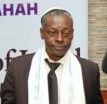Dr. Patrick Oyinkari, Chairman of the Association of Sabbath-Keepers (ASK) has corrected the impression that Sabbath-keeping churches are occult societies, saying it is a matter of calling a dog a bad name to hang it. He explains the ideology of Sabbath churches in the this concluding part of his interview with Christian Benefits’ Wole Olarinde, previously started in a recent edition of the magazine. Excerpts.
What are some of the beliefs that Sabbath churches share with non-Sabbath churches?
Everyone believes that there is God. It is also equally accepted that there are rules or laws that guide the worship of God, although the extent to which each goes in worshiping may vary. Every Bible user agrees there are Ten Commandments but while some agree to obey all ten, some go with nine and some even with eight. We choose to obey all ten because they are intertwined and inseparable – the breaking of one amounts to the breaking of all (James 2:10). This is where obeying the fourth commandment, the Sabbath and disobeying it makes us different. From the New Testament perspective there is a general agreement that God so loved the world that He gave His only begotten Son that whosoever believes in Him should not perish but have everlasting life (John 3:16) but how this is twisted to make God be the same as the Son has become a point of difference. We all sing and dance and expect another life after this; but whereas we look forward to the earth made new where the kingdom of God will come to, those who have rejected the counsel of God also reject this hope and expectation. Sabbath keepers are very critical and want to be guided by the Scriptures wary of the warning that there would be false teachings in the last days. Thus, they strive to study the scriptures and may be regarded as sticklers to what they know and difficult to change, unlike others who follow every wind of doctrine and so chase after miracles and miracle workers.
What is the relationship of Sabbath churches with the Christian Association of Nigeria (CAN) and the Pentecostal Fellowship of Nigeria (PFN)?
Some of us, who were members of CAN and PFN and turned to start keeping the Sabbath, were ostracized and grievously persecuted. But we have kept faith with the truth and are now being related with cautiously. We are open and will remain accessible to all who seek answers to why we choose to obey God rather man.
But Sabbath churches are perceived in some quarters as occult churches.
It is said that when they want to kill a dog they call it a bad name. Sabbath keeping folks are expected to be esteemed highly as the people of the Most High and closely watch for deviations which are invariably magnified beyond proportion. That they are not in the bandwagon of the popular has raised questions, not to them, but to the popular, who have seized the chance to insidiously instigate the folks against the unpopular, and brand them with unpleasant labels. I encourage those who have any doubt about Sabbath keepers to raise their doubts and issues with Sabbath keepers not with their antagonists. The cockroach can never be justified in the court of the cock. If you want to know the truth about someone you don’t know it would be nice to walk in their shoes. Among the very inner caucus of the Master there was one called Judas Iscariot. With the vibrant and ebullient Paul, there was at least one called Demas, who became a deviant. Charlatans would never cease to emerge where there is a good and desirable stuff. Sabbath keepers are doing their bit to operate within the ambits of the Holy Scriptures. If the Bible says to remember the seventh day Sabbath to keep it holy, a few do so and the majority don’t but all claim to get their authority from the same Bible, who would you say is living by the tenets of the Bible? The disobedient, like Cain, will oppose and persecute the obedient like Abel. Whose truth would you believe?
Finally sir, can we have a look at your profile as the National President of Association of Association of Sabbath Keepers (ASK)?
We chose to go with Chairman rather than President as a means of showing our piety and humility. Bearing exalted titles and offices tend to lift one beyond who and what he really is; equal as everyone else, just honoured and lifted for the time being to lead. Your question tempts one to blow his trumpet whereas we should be moderate. I hope my attempt will meet this. I am an interdisciplinary scholar, a teacher, lawyer, poet, songwriter, author (of award-winning titles such as Dreams, a collection of poems which has found itself in use in several universities around the world; Start Your own Business, among others); and Publisher of TWIT Devotional (a daily Bible reading and meditation guide). I hold a doctorate degree in Business Leadership from the University of South Africa among other qualifications. I lead the Ministerial and Leadership Training Academy.

